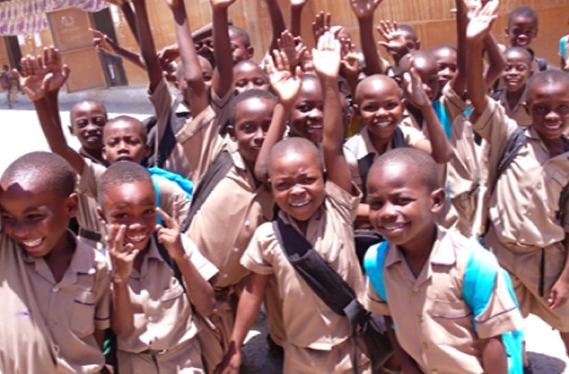In the heart of Africa’s underdeveloped regions, a silent crisis is steadily escalating—one that threatens to rob millions of their most vital sense: sight. The surge in eye problems, largely due to malnutrition and ignorance, is having a devastating impact on communities, particularly among children and the elderly. This crisis, though preventable, continues to grow, putting futures at risk and deepening the cycle of poverty in these vulnerable areas.
The Role of Malnutrition in Eye Health
Good vision starts with good nutrition. Essential vitamins and minerals play a crucial role in maintaining healthy eyesight, yet many people in underdeveloped parts of Africa lack access to these nutrients.
Vitamin A Deficiency: One of the most significant contributors to vision problems is Vitamin A deficiency. This vitamin is essential for maintaining the cornea and ensuring that the retina functions properly, especially in low light. A lack of Vitamin A can lead to night blindness and, in severe cases, to complete blindness. In many African countries, Vitamin A deficiency is widespread due to limited access to nutrient-rich foods. Children are particularly vulnerable, with many suffering from vision problems that could have been easily prevented with proper nutrition.
Other Nutritional Deficiencies: Beyond Vitamin A, other nutrients such as Omega-3 fatty acids, Vitamin C, and Zinc are vital for eye health. Omega-3 fatty acids help prevent dry eyes and reduce the risk of age-related macular degeneration. Vitamin C and E are antioxidants that protect the eyes from damage caused by free radicals, while Zinc is essential for maintaining the health of the retina. However, in regions where food insecurity is common, these nutrients are often lacking in the daily diet, leading to an increase in preventable eye conditions.
Ignorance and Its Impact on Eye Health
While malnutrition sets the stage for eye problems, ignorance and lack of awareness allow these issues to worsen unchecked.
Lack of Education: Many people in underdeveloped areas are unaware of the connection between diet and eye health. They may not realize that their vision problems are preventable or treatable with proper nutrition and care. Additionally, there is often little understanding of the importance of regular eye check-ups, which can catch problems early before they become severe.
Cultural Stigmas and Myths: In some communities, there are cultural stigmas associated with wearing glasses or seeking treatment for eye conditions. Myths about eye health, such as the belief that poor vision is simply a part of aging that cannot be prevented, discourage people from seeking the care they need. This ignorance perpetuates a cycle of untreated vision problems that could be easily addressed with the right knowledge and resources.
First Sight’s Mission: Tackling the Crisis
At First Sight, we understand that addressing this crisis requires a multifaceted approach. We are committed to combating the root causes of eye problems in Africa through a combination of nutritional support, education, and accessible eye care.
– Nutritional Support: We work with local communities to provide access to essential vitamins and supplements that are crucial for maintaining eye health. By distributing these nutrients and educating people about the importance of a balanced diet, we aim to prevent the onset of vision problems caused by malnutrition.
– Educational Outreach: Education is key to preventing blindness. First Sight conducts workshops, seminars, and community outreach programs to raise awareness about the importance of eye health, the role of nutrition, and the availability of treatment options. We strive to dispel myths and provide accurate information that empowers individuals to take control of their eye health.
– Accessible Eye Care: In remote and underserved areas, access to eye care is often limited. First Sight operates mobile clinics that bring eye care services directly to these communities. These clinics provide eye exams, distribute glasses, and offer treatments that can prevent or correct vision problems, ensuring that no one is left without the care they need.
How You Can Help
The fight against preventable blindness in Africa is one that requires global support. Here’s how you can make a difference:
– Donate: Your financial contributions help fund the nutritional programs, educational outreach, and mobile clinics that are vital for preventing blindness and restoring vision in underdeveloped communities.
– Raise Awareness: Share information about the link between nutrition and eye health with your community. By spreading the word, you can help educate others and encourage preventive measures.
– Volunteer: Whether in person or remotely, volunteering with First Sight allows you to play an active role in our mission. Your time and skills can make a direct impact on the lives of those in need.
Conclusion
The rising incidence of eye problems due to malnutrition and ignorance in Africa is a challenge that demands urgent attention. By addressing these issues head-on, we can prevent countless cases of blindness and vision impairment, giving individuals the chance to lead fuller, healthier lives. At First Sight, we are committed to making this vision a reality, but we need your help to reach those who need it most.
Join us at [First Sight](https://firstsight.org) in our mission to protect and restore vision across Africa. Together, we can bring clarity, health, and hope to millions.
This blog post aims to shed light on the critical issue of eye health in underdeveloped regions of Africa, emphasizing the importance of nutrition, education, and accessible care in combating this growing crisis.


